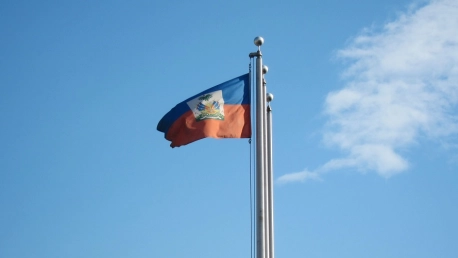Haiti has requested troops from the United States (U.S.) and the United Nations (U.N.) in order to help the country protect its key infrastructure after the assassination of President Jovenel Moïse. The request was made public by Haitian Elections Minister Mathias Pierre, who provided details for different media outlets, including Reuters and Agence France-Presse. According to Mathias Pierre, Haiti’s interim prime minister Claude Joseph spoke with U.S. Secretary of State Antony Blinken last Wednesday, with the former voicing concerns about infrastructure and asking for assistance from the U.S. and the U.N.
Haitian officials seem to be sure that the suspects are in fact paid assassins. Acting Prime Minister Claude Joseph described Haiti’s fallen leader as “a man of courage” in an interview, also pointed out he had resisted “oligarchs in the country.” The Haitian Prime Minister also asked for an international investigation of the murder.
The Beginning of the End
President Jovenel Moïse was assassinated on Wednesday, July 7, after a group of armed men broke into his home in the Pelerin neighborhood in Pétionville. They went on to shoot the president 12 times and ultimately kill him, while also shooting and injuring the First Lady, Martine Moïse. Although she sustained multiple injuries, and was later hospitalized in Florida, U.S., she is said to be in a stable condition. The president’s daughter, Jomarlie Moïse, was left uninjured, as she hid in another room. According to Haitian officials, the president’s three children were later moved to “safe locations”.
A group of 28 suspects was thought to be part of the killing, according to CNN. Among these are 26 Colombian citizens and two U.S. citizens. Three gunmen were shot by police at the scene, 20 have already been detained, while five are thought to be still at large. Among those detained are 18 Colombian nationals. Colombia’s police chief, Gen. Jorge Luis Vargas, later stated that approximately 13 of the presumed gunmen are thought to be former members of the Colombian army. Two of the men shot at the scene are among these veterans.
An International Affair
Vargas was not alone in confirming suspicions regarding the possible involvement of former Colombian soldiers in this murder. According to other sources, veterans of the Colombian army, which receives both funds and guidance from the U.S. military, have been known to act as hired assassins once they complete their service. One of the reasons behind this may be the fact that Colombian veterans have years of experience fighting radicals inside their own country. They are also trained by the U.S. military and often lack other skills that could make them employable outside the army. Given their limited options, Colombian veterans are often suspected of involvement in criminal activities.
Haitian police chief Léon Charles also supported the claims, while asking the public to refrain from taking the law into their own hands. “Foreigners came to our country to kill the president,” he announced shortly before providing details about the gunmen. He went on to say that the 26 Colombians were identified by their passports, as were the two Haitian Americans. However, regardless of who pulled the trigger, the real question is who ordered the murder. Political uncertainty soon engulfed Haiti, and the government decided to announce a two-week state of emergency in order to solve the puzzle.
Helping Haiti Recover
Claude Joseph urged Haitians to remain calm and assured them that the situation is under control. “This barbaric act will not remain unpunished,” he said. It was Haiti’s interim prime minister, however, who asked U.S. Secretary of State Antony Blinken for assistance, while also going to the U.N. for help. But, while any plan to send international troops to Haiti will require a green light from the U.N. Security Council, it remains to be seen if Americans will answer the call swiftly. For now, at least, the short answer is that the U.S. is only helping Haiti investigate a murder.
The U.S. is unlikely to send troops to Haiti as a consequence of president’s Jovenel Moïse’s assassination. However, this doesn’t mean that the Biden administration will remain completely neutral to Haiti’s problems. As the country descends into chaos, the need for help increases.









